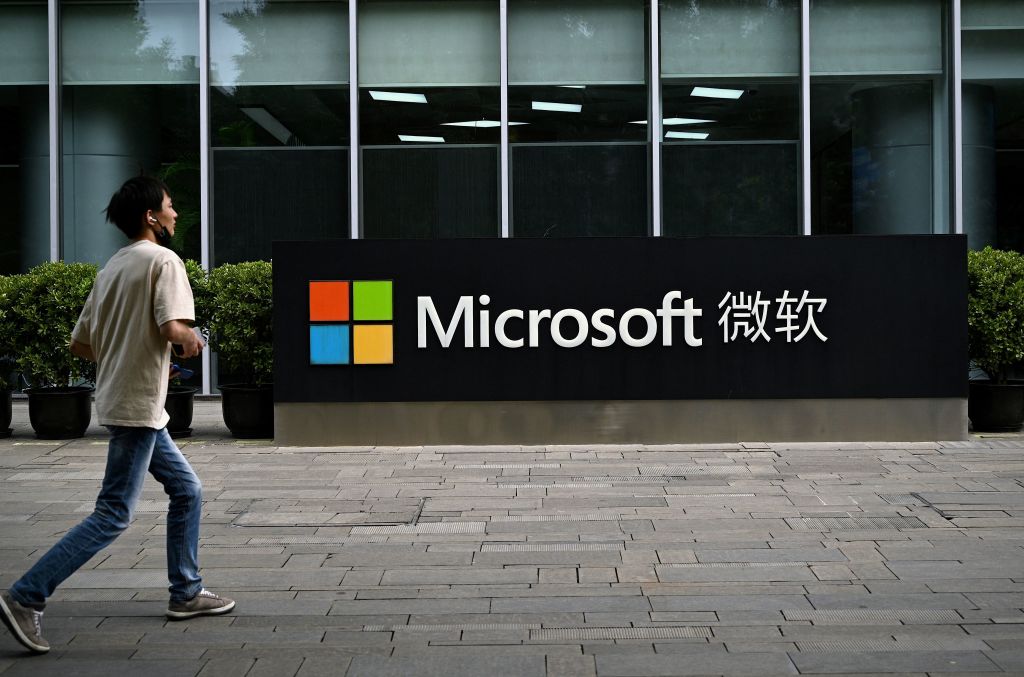
Microsoft has released Windows 11, its next operating system, as a free upgrade for eligible Windows 10 devices on Tuesday. However, many users in China found that they were unable to move to the newest Windows as their computers lacked a critical component called a trusted platform module (TPM) chip, which Microsoft has now made a minimum requirement.
TPM is an international standard for a secure cryptoprocessor and is comparable to a security alarm for computers that prevents hackers or malware from accessing data.
Microsoft has made the latest TPM 2.0 specification a minimum requirement for anyone wishing to run Windows 11. However, China banned foreign-made TPM chips back in 1999 citing national security reasons. It adopted a domestic equivalent at the onset of the semiconductor standoff with the US.
Shortly after Microsoft released its Windows 11 update on Tuesday, Chinese PC users flooded Weibo – a national microblogging platform – with screenshots showing an error message as they tried to update to the latest version.
“This PC doesn’t meet the minimum system requirements for running Windows 11 – these requirements help ensure a more reliable and higher quality experience. Installing Windows 11 on this PC is not recommended and may result in compatibility issues,” the notice read.
Many users blamed Microsoft for the issue, lamenting that the update was too complicated. One user commented on Weibo:
How well do you really know your competitors?
Access the most comprehensive Company Profiles on the market, powered by GlobalData. Save hours of research. Gain competitive edge.

Thank you!
Your download email will arrive shortly
Not ready to buy yet? Download a free sample
We are confident about the unique quality of our Company Profiles. However, we want you to make the most beneficial decision for your business, so we offer a free sample that you can download by submitting the below form
By GlobalData“I have no choice but to complain about Microsoft. If you want to popularise Win11, can you show some sincerity? Don’t make it so complicated, as right now, not many people can directly upgrade their systems online, can they? After looking around, I found that many people’s computers simply don’t meet the update requirements. What kind of a popularisation is this?”
TPMs are said to make piracy more difficult, which has been a persistent problem for Microsoft’s business. Atari founder Nolan Bushnell famously said in 2008 that encryption chips would be the solution.
“There is a stealth encryption chip called a TPM that is going on the motherboards of most of the computers that are coming out now,” he pointed out at a conference at the time.
“What that says is that in the games business, we will be able to encrypt with an absolutely verifiable private key in the encryption world – which is uncrackable by people on the internet and by giving away passwords – which will allow for a huge market to develop in some of the areas where piracy has been a real problem.”
This is partially why Microsoft actively promoted the importance of the chip prior to Window 11’s release. The company’s history in China has been turbulent, with piracy a major issue.
“It’s not hard to find Microsoft software in China even in Chinese government institutions. It’s a lot harder to find Microsoft software that Microsoft has been paid for,” Microsoft president Brad Smith Smith said in an interview in 2018.
China’s ban on TPM has attracted some controversy over the years. After it rejected the international model, it introduced its own equivalent, the trusted cryptography module (TCM).
In 2005, Lenovo launched the Hengzhi chip, designed by the government and manufactured in China. It is similar to a TPM, but it does not follow Trusted Computing Group specifications – an alliance established in 1999 between various international computing companies including Intel, AMD, IBM, Microsoft and Cisco.
“Anything that concerns security is of national importance in China and possibly has to be regulated or dealt with accordingly based on current rules,” an analyst told the South China Morning Post. “As such, some users in China may be unable to update their Windows operating systems without explicit government approval of TPM modules.”
The problem seems likely to be fixed at some point. “It is possible that Microsoft will find a way out of the situation … the China market is too big for Microsoft to not make any negotiations around their product offering,” the analyst said.
Windows is the most widely used desktop operating system in China, the world’s second-largest economy and biggest PC market. Even so, China doesn’t account for much of the company’s overall revenue. China contributed less than 2% of Microsoft’s annual revenue in 2019, which was approximately $2bn, Smith said in January last year.
The South China Morning Post also reported that William Li, semiconductor analyst at Counterpoint Research, said Microsoft had already allowed certain systems to update without the TPM feature enabled.
“Those specific offerings are tailored for countries that don’t allow original encryption technologies, namely China and Russia,” he said.
PC users around the world will be affected by Windows 11’s strict requirement for TPM 2.0. A recent survey published by IT management outfit Lansweeper found that among 30 million Windows devices, nearly half did not have TPM enabled.
Like China, TPMs are also banned in Russia, which does not have a domestic equivalent.




